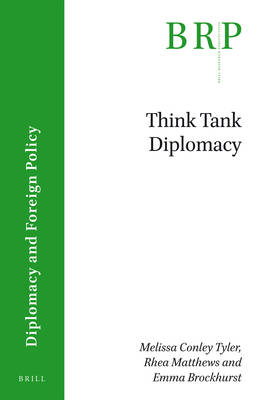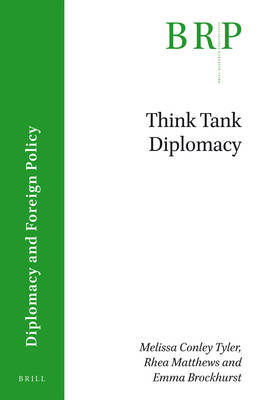
- Afhalen na 1 uur in een winkel met voorraad
- Gratis thuislevering in België vanaf € 30
- Ruim aanbod met 7 miljoen producten
- Afhalen na 1 uur in een winkel met voorraad
- Gratis thuislevering in België vanaf € 30
- Ruim aanbod met 7 miljoen producten
Zoeken
Omschrijving
If a key aspect of diplomacy is how countries are seen abroad, official diplomats are not the only actors. In contexts as diverse as Syria, Myanmar and the South China Sea, think tanks are influential actors whose impact deserves greater study. As organisations producing independent intellectual outputs to influence public policy, think tanks engage in at least four diplomatic functions: negotiation, communication, information-gathering and promoting friendly relations in international affairs. Detailed case studies show that think tanks both directly perform and indirectly support diplomatic functions: as metaphorical hired guns, charm offensive, witnesses and safe space; as a school for diplomats, personal trainers, chief knowledge officer and wise counsel. To reach their full potential, think tanks need to overcome obstacles including resource constraints and relationships with policymakers.
Specificaties
Betrokkenen
- Auteur(s):
- Uitgeverij:
Inhoud
- Aantal bladzijden:
- 102
- Taal:
- Engels
- Reeks:
Eigenschappen
- Productcode (EAN):
- 9789004331204
- Verschijningsdatum:
- 26/10/2017
- Uitvoering:
- Paperback
- Formaat:
- Trade paperback (VS)
- Afmetingen:
- 150 mm x 231 mm
- Gewicht:
- 158 g

Alleen bij Standaard Boekhandel
+ 256 punten op je klantenkaart van Standaard Boekhandel
Beoordelingen
We publiceren alleen reviews die voldoen aan de voorwaarden voor reviews. Bekijk onze voorwaarden voor reviews.











